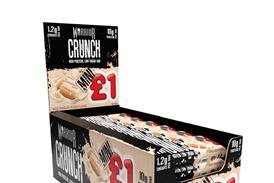Scotland’s ban on multi-buy promotions for alcohol has failed to reduce consumer spending on booze, according to a new study.
Researchers at the Behaviour and Health Research Unit - a collaboration between the University of East Anglia and University of Cambridge - are calling for stronger measures, including minimum unit pricing, to reduce alcohol-related harm in the UK.
The study evaluated the impact of Scotland’s ban on multi-buy promotions, implemented in October 2011, on the volume of alcohol purchased.
It found that Scottish consumers started buying fewer products per shopping trip, but went out to buy beer and cider more frequently, leaving the overall amount purchased unchanged.
“The industry appears to have responded to the ban by replacing multi-buy with simple price reduction, which made it possible for Scottish consumers to buy alcohol at a discounted price but with a smaller financial outlay,” said lead author Dr Ryota Nakamura from UEA’s Norwich Medical School. “This might have mitigated the intended effects of the policy.”
The researchers said more encompassing policy would be needed to reduce alcohol consumption.
“Partially banning price promotions leaves the door open for industry to just switch to other forms of price promotions, or indeed to reduce the overall price of alcohol,” said Professor Marc Suhrcke, also from UEA’s Norwich Medical School.
“Imposing greater excise duties on alcohol and introducing minimum unit pricing have been shown to reduce alcohol consumption and related harms.”
The researchers used detailed household data from the Kantar WorldPanel.















2 Readers' comments